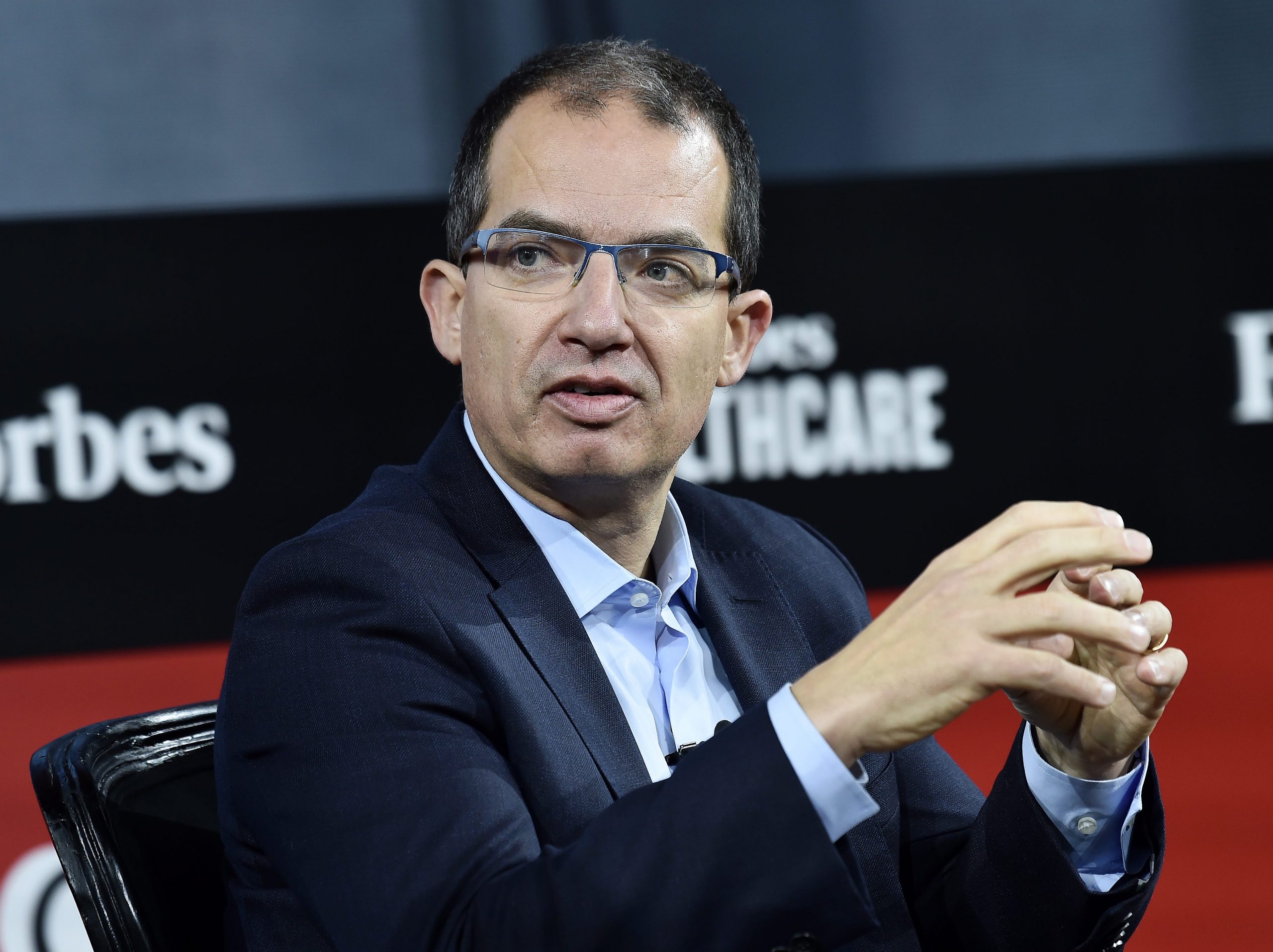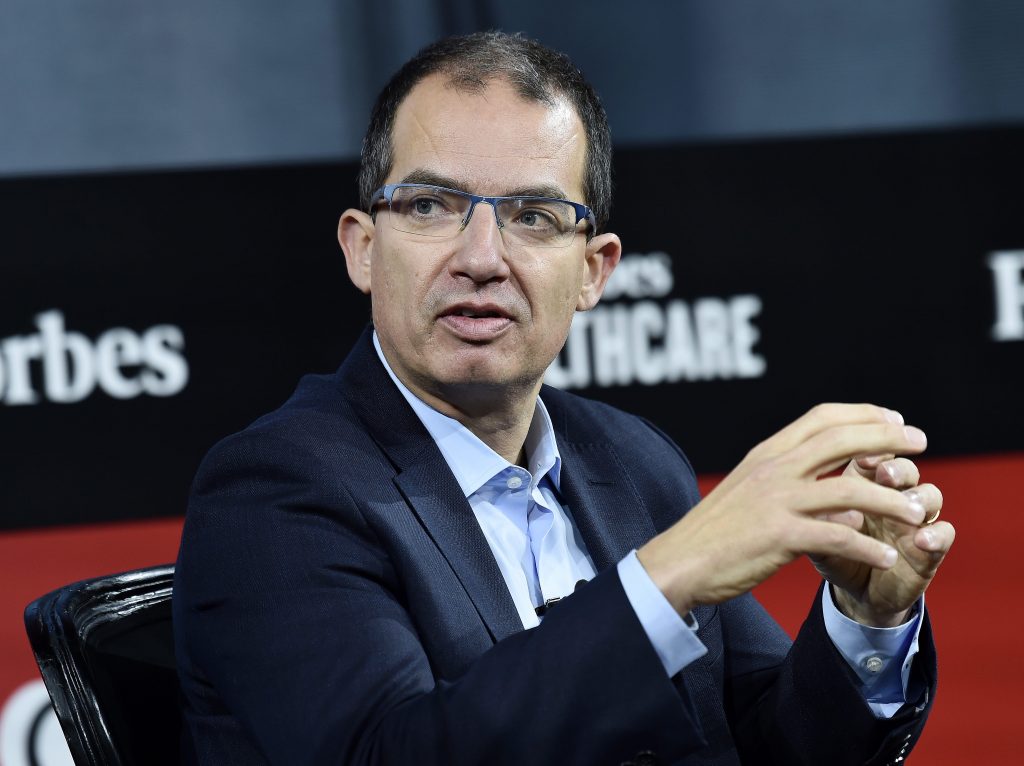
- Moderna CEO says the pandemic will end this year, but annual shots will be needed for some.
- A new shot that combines the original vaccine with one targeting Omicron is likely, Stéphane Bancel said.
- Experts have cautioned before that we can't predict how the virus might evolve.
Moderna CEO Stéphane Bancel has said that the pandemic will by over by 2022, but those most vulnerable to COVID-19 might need a new type of booster in the fall.
Speaking to the Financial Times Thursday, Bancel said: "We should be in a world where between vaccination, boosting and natural infection and potentially a less virulent virus we might move to an endemic setting where it circulates in the community forever."
Bancel said earlier this month that it was "reasonable" to suggest the pandemic was in its final stages and people older than 50 or those at high risk of severe illness would probably need yearly boosters.
This time, he hinted at the type of booster people might receive.
A new booster that combines Moderna's existing vaccine with an Omicron-specific shot was the most likely candidate based on initial data, Bancel told the FT, adding that a final decision would be made when clinical data became available and health authorities were on board with the approach.
The company is also testing an all-in-one COVID-19 and flu vaccine, he said.
Bancel said that the drugmaker was in talks with private US companies to prepare for a time when the virus was endemic and governments no longer dictated vaccine distribution. This would enable Moderna to charge more for its COVID-19 shot, he said.
Moderna announced Thursday that its 2021 revenue was $18.5 billion, up from $803 million the year before, mostly due to COVID-19 vaccine sales. The biotech giant has already signed vaccine deals worth about $19 billion in 2022, with options for an extra $3 billion, it said.
Bancel's optimistic forecasts are based on his belief that there's "about an 80% chance" that as the virus evolves, it will become "less and less virulent."
But, disease experts and health officials have cautioned that the virus is unpredictable.
Francois Balloux, director at the University College London Genetics Institute, said on Twitter earlier this month, that there was "no meaningful theory" that the virus that causes COVID-19 was mutating to be inherently less virulent.

